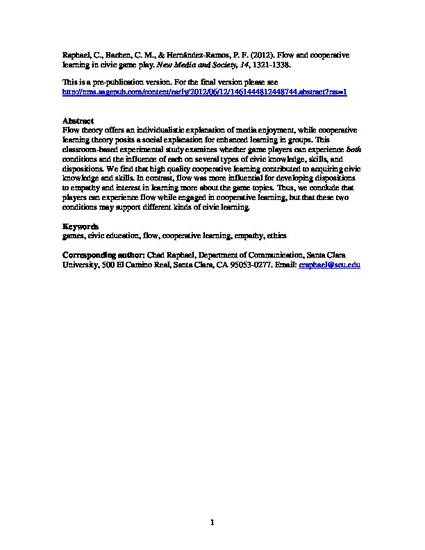
Flow theory offers an individualistic explanation of media enjoyment, while cooperative learning theory posits a social explanation for enhanced learning in groups. This classroom-based experimental study examines whether game players can experience both conditions and the influence of each on several types of civic knowledge, skills, and dispositions. We find that high quality cooperative learning contributed to acquiring civic knowledge and skills. In contrast, flow was more influential for developing dispositions to empathy and interest in learning more about the game topics. Thus, we conclude that players can experience flow while engaged in cooperative learning, but that these two conditions may support different kinds of civic learning.
http://doi.org/10.1177/1461444812448744
